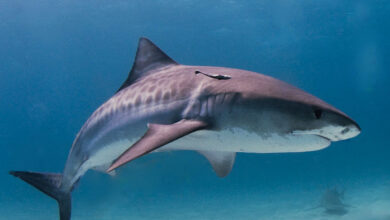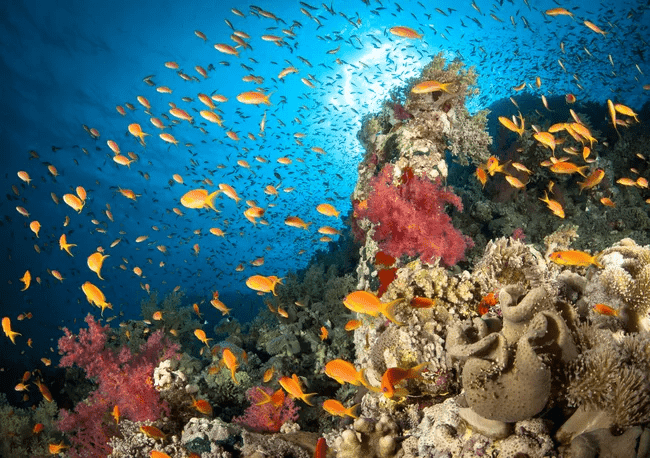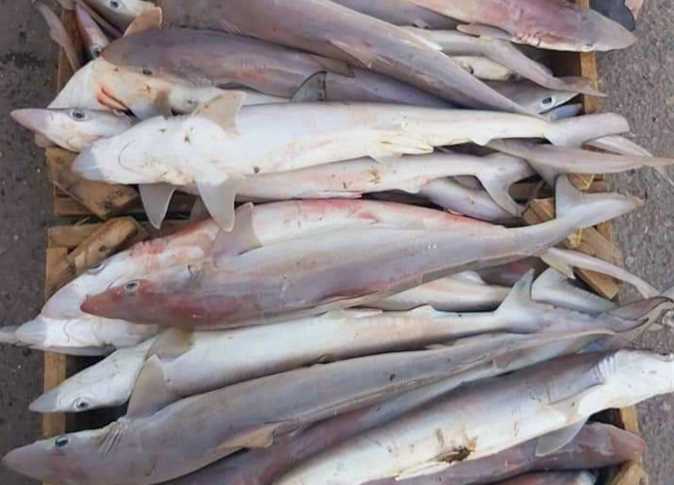The Ras Mohamed National Park, Egypt's first natural protectorate, is under renewed threat from a decision to reintroduce commercial fishing within this delicate Red Sea habitat. Earlier this month the governor of South Sinai, Mohamed Abdel Fadeel Shousha, gave fishermen the green light to commence net fishing in the waters of this protectorate during the month of June.
Net fishing in the Red Sea is technically banned from the end of May to the beginning of September. Nonetheless, tens of commercial fishing boats have already been sighted operating within the waters of Ras Mohamed this month, and will continue doing so through June unless action is taken.
The month of June is spawning season for the valuable emperor fish (Lethrinus Nebulosus.) The spawning aggregation areas of this valuable fish are centered around the waters of South Sinai, and especially around the area of Ras Mohamed. The decision of the South Sinai governor to allow fishing at this time of year has been strongly criticized by environmental authorities, tourist institutions and dive-operators.
Amr Ali, Managing Director of the Hurghada Environmental Protection and Conservation Association (HEPCA), told Al-Masry Al-Youm, "This decision worries us, not only because it threatens marine biology and fish stocks. The issue at stake here is the protection of Egypt's most renowned protectorate, the Ras Mohamed natural park."
Ali went on to say, "This is an unprecedented environmental violation on the part of a governor. His decision is a violation of both the protectorates law and the fishing law." Ali indicated that the Ministry of State for Environmental Affairs and the interim cabinet offered financial compensation to the fishermen, yet the governor declined.
According to Ali, "The fall of the Ras Mohamed natural park represents the fall of the dignity and integrity of the Egyptian state and its natural resources. This is simply an incompetent and destructive decision on the part of the governor.
"If we wait for spawning season to take its course, then fish stocks will be replenished and fishing will be sustainable," he continued. "Yet putting short-term, commercially-oriented goals ahead of long-term, conservation goals will prove disastrous to the Red Sea's ecosystem."
Ziad al-Basil, Deputy Chairman of Egypt's Chamber of Diving and Water-sports, had previously told Al-Masry Al-Youm that Shousha's decision is "shocking and worrying" as it comes from an authority that is "well aware of the detriments of fishing" in such a critical time and place. He added that commercial fishing has disturbed the ecological balance in the Red Sea, and has reportedly influenced shark attacks around Sharm el-Sheikh.
Basil said that such a decision would serve to destroy the diving and tourism industry centered around Ras Mohamed, and would make it "the laughing stock of tourist destinations".
The spokesman for the Governorate of South Sinai could not be reached for questions and clarifications, regarding the governor's decision.
According to Mahmoud Hanafy, professor of marine biology, and environmental advisor to the Red Sea Governorate and HEPCA: "Ras Mohamed is far more valuable as a tourist destination than a fishing destination."
He added that there is a serious depression in the populations of the emperor fish, whereby catches have decreased by some 90 percent. "Immediate action must be taken to ensure the recovery of these populations," he said.
Hanafy pointed out that net fishing "facilitates large catches, and leaves little to no chance for spawning," especially if such forms of fishing take place during spawning season, and in designated spawning aggregation areas.
He explained that Shousha's decision is in breach of Fishing Law 124/1983, which prohibits all forms of fishing in spawning grounds, as well as the Natural Protectorates Law 102/1983, which prohibits the catching of wildlife, the destruction of natural habitats, and/or the pollution of these protected zones.
The marine biologist added that a proposed "fisheries-management plan must be implemented and enforced" to protect spawning zones, and to keep commercial fishing boats away during spawning season, "in order to save the Red Sea and its biodiversity."
"The environs of Ras Mohamed are the only spawning aggregation area located around South Sinai," said Hanafy, insisting that all net-fishing should be banned in the park's waters, especially during the months of June, July and August.
Net-fishing ensnares endangered marine species (including dolphins, sharks, dugongs, sea-turtles, etc.) and destroys coral reefs – upon which marine life flourishes. The dropping of anchors similarly destroys coral reefs.
Hanafy acknowledged that fishermen have applied a great deal of pressure on the governor of South Sinai in order to open up fishing grounds and to protect their livelihoods, and have even threatened to block roads throughout the governorate. The majority of commercial boats that use net fishing in their operations are said to come from the Suez Canal and Nile Delta, where fish stocks have been depleted beyond repair.
Hanafy recommended that this devastating encroachment upon the Red Sea could be addressed if the tourism industry would employ these fishermen in other jobs to provide them with alternate sources of income.
He contrasts net fishing with traditional methods, using fishing rods, hooks and lines. “Traditional fishermen, who have been fishing in this sea for generations should not prevented from doing so," he said.
“However, commercial fishing boats, net fishing, and trawlers should not be allowed during any month of the year. This is about saving the Red Sea, its fragile ecosystem, its biodiversity, and the tourism industry based around it."




